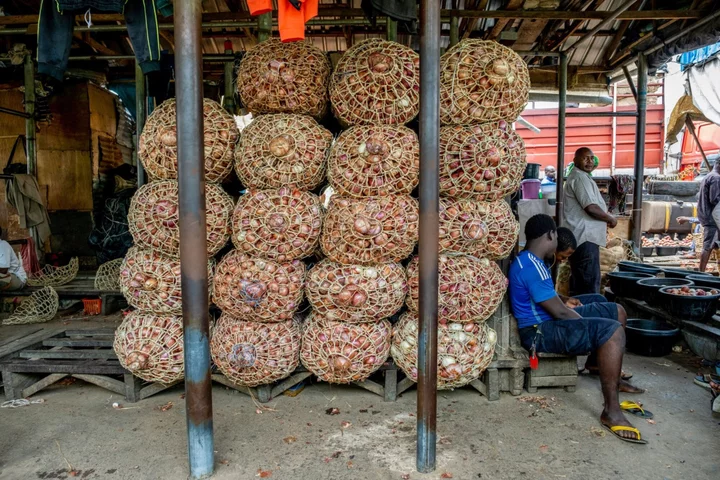Turkey’s current account moved into surplus for the first time in nearly two years, as a boom in tourism and a lower energy import bill helped ease pressures on the economy during a shift in domestic policies.
The broadest measure of trade and investment flows with the outside world had a surplus of $674 million in June, according to data published by the central bank on Friday. Turkey’s current-account balance was last in the black in October 2021.
The swing from deficit was sharper than forecast but may prove hard to sustain if purchases of goods from abroad remain strong in an economy long hobbled by trade imbalances. The improvement in imports has so far been relatively meager, according to Istanbul-based economist Haluk Burumcekci.
Still, the turnaround adds to tentative signs that a sharp change in approach under the new policymaking team installed by President Recep Tayyip Erdogan is filtering through the $900 billion economy.
The focus has been on curing Turkey’s chronic current-account deficit by cooling off domestic demand and loan growth with more conventional measures such as higher interest rates.
“The drop in energy and overall commodity prices in the first half of this year, along with an improvement in global economic activity, reflected positively on Turkey’s exports and therefore the current—account balance,” Burumcekci said.
Turkey’s economy has been prone to inflation crises, prompting people to flock to gold as a hedge against runaway prices. Officials have taken some measures to dampen demand for bullion that’s been a drag on Turkey’s external finances.
The question remains if domestic policy is tight enough at a time when weaker external demand hurts Turkish exports and purchases of gold keep the trade deficit wide.
Central bank Governor Hafize Gaye Erkan said last month that the impact of the monetary tightening cycle started in June would result in an improvement in the current account in the second half of 2023.
But annual inflation is still running near 50% and the lira remains under pressure to depreciate, making foreign goods more expensive.
A slowdown in global economic activity poses a risk for Turkish exports even as steep declines in the lira and monetary tightening help contain imports, according to Burumcekci.
“It may be hard to forecast which of the two factors will weigh more heavily as they act in opposite directions,” he said.









